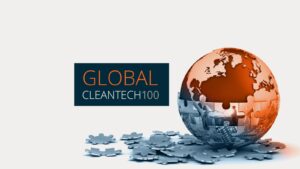Meet node.energy, the Renewable Energy Planning and Management Innovator and Recipient of Solar Impulse #1000solutions Label
Addressing environmental challenges while enabling economic growth is the simple and compelling idea behind the Solar Impulse Foundation. In partnership with Cleantech Group, the foundation recently launched its #1000solutions challenge, an opportunity for businesses to show they can protect the environment in a profitable and timely fashion, bringing their ideas to decision makers to help them adopt more ambitious environmental targets and energy policies. To earn the #1000solutions label, companies must be independently assessed by experts. Once approved, the label serves as a credible marker of quality to decision-makers in business and government alike.
So, we would like to introduce you to node.energy, which recently earned the #1000solutions label. We caught up Philipp Petruschke, Head of Marketing and PR, to find out what the company does and its motivation to be part of #1000solutions.
Great to meet you, Philipp. Can you start by providing some background to the company?
node.energy was launched just four years ago. Eighteen months ago, we launched a software-as-a-service (SaaS) offering intended to support companies as they make the switch to renewables. We currently have two key offerings. Our first offering? We support the planning and design of onsite renewable energy systems for industrial and commercial customers. Currently, defining a solution consisting of solar storage or even co-generation is very technical and requires special design tools. Our planning tool is complementary to the technical engineering tools needed to provide a comprehensive view on which components should be used in each individual onsite energy system. Our second offering is the management module which allows companies to actively manage the commercial, legal and administrative parts of an existing energy system.
What is the core differentiator for your product compared to other competitors in the market?
Our systems include the complete legal framework applicable in Germany, including a digital twin of all rules and regulations for the design and operation of energy systems. Using our tool, you can take into account the legal requirements while analyzing the impact of taxation, charges, grid consumption fees and legal obligations (if any) with the grid operator or with third parties.
What kind of datasets do you aggregate to support your software?
We use all the site-specific data including location, irradiation data on solar coverage, data on all German regulations and real-time meter data. We use all this to create a multi-layered digital twin, coupled with optimization algorithms to determine the best set-up.
Are there any interesting projects or customer activities underway?
We are serving more than 30 customers and have about 80 sites under management. We have two very important customers. We are working with Deutsche Post, the German national post which owns energy production on-site. Currently, we work with them on more than 30 sites and are actively managing these using our manager module for all administrative work. Another interesting project is with an international legal advisory firm called Rödl and Partner, who offer advisory services for energy duties and taxes. By offering them a white label software solution, we have allowed them to create their own consultancy solution on top.
What business model are you operating with today?
We currently offer a standard SaaS model, based on an annual subscription fee, but we also see an opportunity in the near future to develop into a marketplace provider, where we can take a transaction fee for a supplier match-making service, based on our planning modules’ installation recommendations.
What is your plan for the next 12 to 18 months?
The primary aim for our customers is abating CO2 emissions. With that in mind, we are looking to develop an additional offering focused strictly on CO2 monitoring and management. There are already some companies with various offerings, but they tend to focus more on the mitigation and offsetting. As around 85% of CO2 emissions are directly related to the energy supply, we feel we can couple the CO2 emission management much closer with what we are doing.
Our plan is to cover the German market and to raise further investment towards the end of the year to expand and grow our services. We also plan to tackle two or three other European countries with regulatory and legal complexities similar to those in Germany which makes our service more valuable.
Why did you apply to be one of Solar Impulse’s #1000solutions and what do you hope to gain from this label?
One big motivation was to increase our visibility as a start-up. The Solar Impulse Foundation goals align perfectly with ours and we think that being one of their awarded companies will give us additional credibility and reach when talking to customers and decision-makers.


